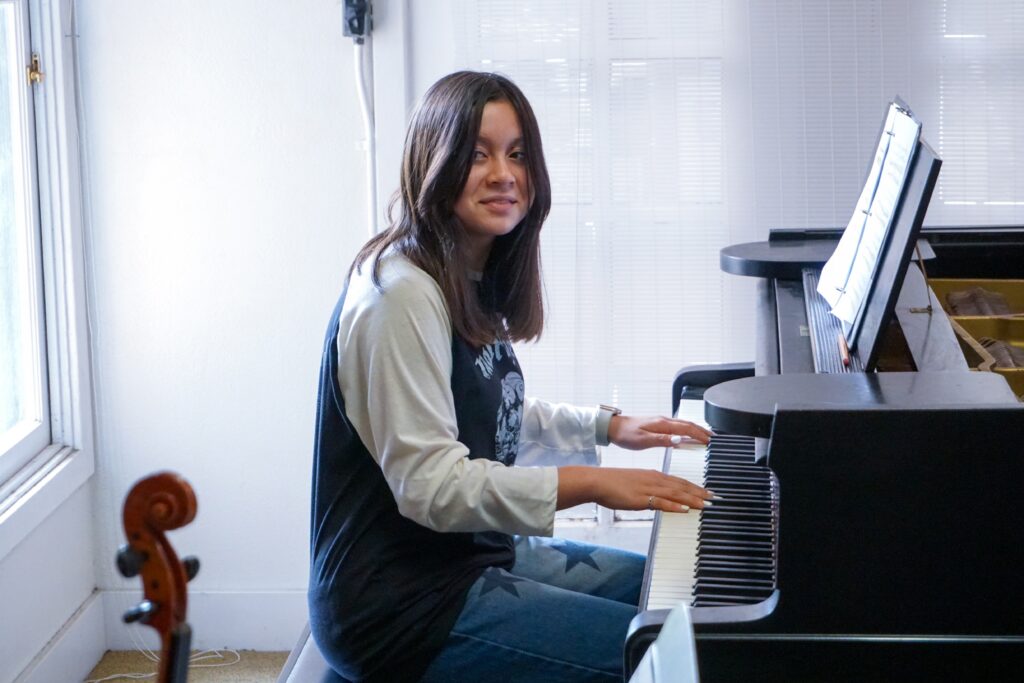Learning to play the piano can be an exciting and rewarding journey, but like any skill, it comes with its own challenges. As a beginner, it is important to be aware of common mistakes that can hinder your progress and diminish the enjoyment of your musical activity. By recognizing and addressing these obstacles from the start, you will be able to set yourself on the path to becoming a more competent and confident pianist:
Skipping Fundamentals: One of the most common mistakes beginners make is skipping or neglecting the basic fundamentals of piano playing. It may be tempting to jump into playing your favorite songs right away, but without a solid foundation in music theory, proper hand positioning, and basic technique, progress can be stunted. Take the time to learn the basics thoroughly before moving on to more complex pieces.
Poor Posture and Hand Positioning: Developing good posture and hand positioning is crucial for efficient and comfortable piano playing. Slouching or having improper hand placement can lead to tension, fatigue, and even injury. Practice sitting up straight, keeping your wrists level with the keyboard, and maintaining relaxed hands and fingers. Consistent attention to proper posture will pay off in the long run.
Ignoring Finger Strength and Independence: Many beginners struggle with finger strength and independence. It’s essential to train each finger to work independently and develop the strength to execute various passages. Regular finger exercises and scales can help improve dexterity and coordination, preventing the frustration that can arise from fingers that feel weak or uncoordinated.
Playing Too Fast, Too Soon: Speed is often seen as a measure of proficiency, but playing too fast, especially as a beginner, can lead to sloppy technique and mistakes. Focus on playing slowly and accurately, gradually increasing the tempo as you become more comfortable with a piece. This methodical approach will result in a cleaner and more controlled performance.
Neglecting Regular Practice: Consistency is key when learning any new skill, and playing the piano is no exception. Neglecting regular practice sessions can impede progress and make it challenging to build muscle memory. Set aside dedicated time each day for practice, even if it’s just for a short duration. Regular, focused practice is more beneficial than sporadic, lengthy sessions.
Learning to read music: Reading sheet music while learning the piano is crucial for accessing a broad repertoire and developing musical skills. Sheet music details melody, harmony, and rhythm, facilitating accurate interpretation of pieces and fostering musical autonomy. Additionally, it enables effective communication with other musicians.
Not Seeking Guidance or Taking Lessons: Some beginners may underestimate the value of seeking guidance from a qualified teacher. Professional guidance can provide personalized feedback, correct bad habits, and offer structured learning plans. While self-learning is possible, having a mentor can significantly accelerate your progress.
Overlooking the Importance of Ear Training: Developing a good ear is crucial for any musician. Beginners often focus solely on reading sheet music and neglect ear training. Practice playing by ear, identifying intervals, and recognizing melodies. This skill will enhance your musicality, making it easier to learn new pieces and improvise.
Not Having Fun!: Finally, one of the most common mistakes is forgetting to have fun. Remember why you started playing the piano in the first place – for the love of music. Enjoy the process, explore different genres, and appreciate the joy that comes with creating beautiful melodies. At CMC, having fun and enjoyment are part of our DNA. Gertrude Field, CMC’s founder, had a very straightforward educational philosophy: “Our aim is to create a musical atmosphere in the home by giving children the means of expression. Hence, ‘how beautiful,’ rather than how well-played or sung, is the comment one hears oftenest in our classes.”
If you want to start or continue improving your piano skills, we invite you to explore our variety of affordable music classes, lessons, and ensembles here.
Meet our talented piano faculty here.



